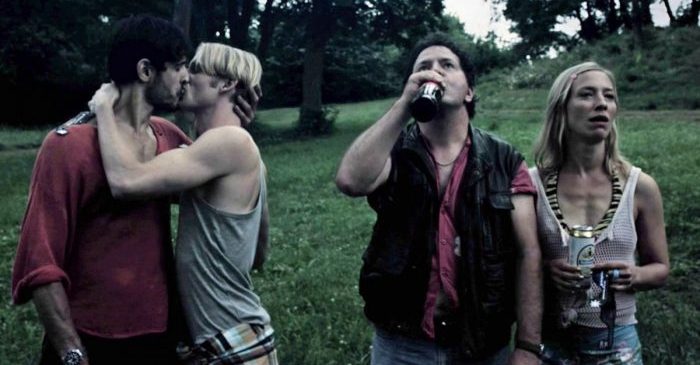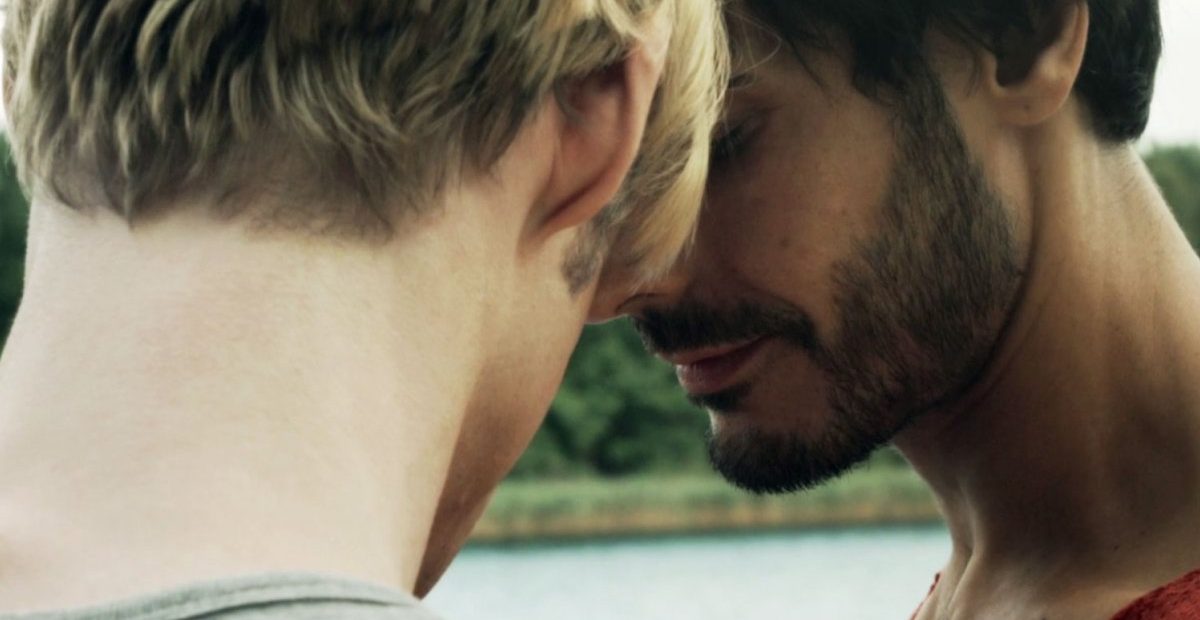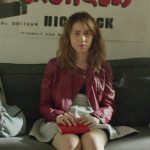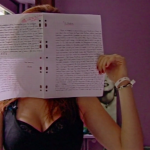Director: Stefan Aretz
The slow and almost silent introductory lateral tracking shot immediately numbs us with apprehension. What could have possibly gone wrong in this upper middle-class apartment? The black and white shots of dishevelled rooms backed by soft music inspire mystery and a sense of tragedy.
In the first scene of Stefan Aretz’s Sorry Guys, there is absence, loss and most probably pain, echoed by the lonely male figure standing in the living room, his back to us.
As we least expect it, we are violently flung back into the past – a past as bright, colourful, sunny and loud (a rhythmical, rock song plunges us into it) as the present is quiet, empty and grey.
On a warm summer day, Svenja (wonderfully played by the ardent Cate Blanchett look-alike, Sandra Borgmann) and her boyfriend Ulfi are heading to a lakeside area to meet Svenja’s brother, Louis, and his partner Robert. Once the uncomfortable introductions to Ulfi have been made, amid mixed emotions of uneasiness and excitement, the trio explain to a bewildered Ulfi the reason they are here. Svenja will act as Robert and Louis’ surrogate mother via artificial insemination (or “self-impregnation” as they joyfully call it).

It is quickly clear that the event is ceremonial and has been planned to perfection: the lake location (water symbolizes feminine energy), the peaceful surrounding nature, the storks (a deep symbolism for motherhood and birthing) and the small coloured paper lanterns lighting the (sacred) area. More importantly, they are prepared for an imminent eclipse which is the miraculous opening act to the evening’s first happy moments preceding the impregnation. Everything is ready, everyone is happy and there is hope in the air.
As the evening settles in, doubts and hesitations appear. Louis and Robert wonder if they are making the right decision, if they are truly understanding the responsibility of raising a child. The characters are portrayed at their best when they confront each other in pairs: it is then that their true personality and agenda unveil. What about this child’s future? Is this a selfish desire? More importantly, is Svenja stable enough?
The film addresses in a simple yet emotional manner the modern-day family and the important decision of having and raising a child. Aretz’s directing is clever with scenes changing periodically from the happy past to flashes of the more serious and dim present with a lonesome Louis. These periods in times which oppose each other, yet are intertwined, draw the path to the much-awaited and dreaded final scene.
The ending credits with its views of the now empty lakeside area and torn coloured lanterns blowing in the wind inspire nostalgia. This feeling is enforced by the musical score which mirrors the situation: “we want it all”, “life is what you make of it”, “seize the day”, “we rise until we fall”. But most of all, “we’re the same”. No matter how different we are made to be, we are all the same, with the same wishes of love, family, comfort and protection. We all live the same cycles of desire, happiness, deceptions and mishaps.
With the last scene appears the much-desired child, Noah, a happy and stable pre-teen boy, apparently used to switching homes between his two separated fathers and his absent mother. We are reminded that, like the biblical Noah, 21st century Noah has survived the great ‘flood’.
Watch Sorry Guys on FilmDoo








